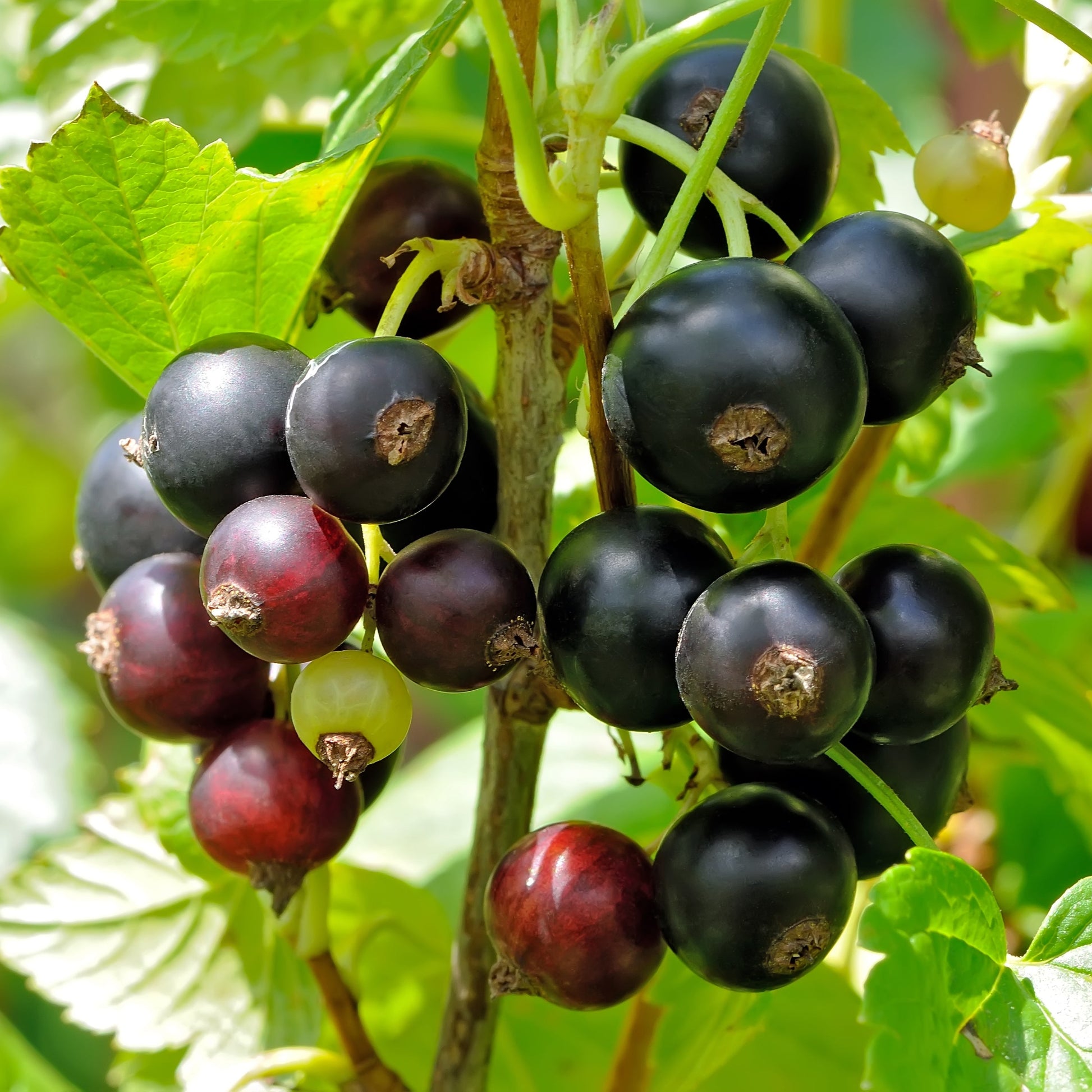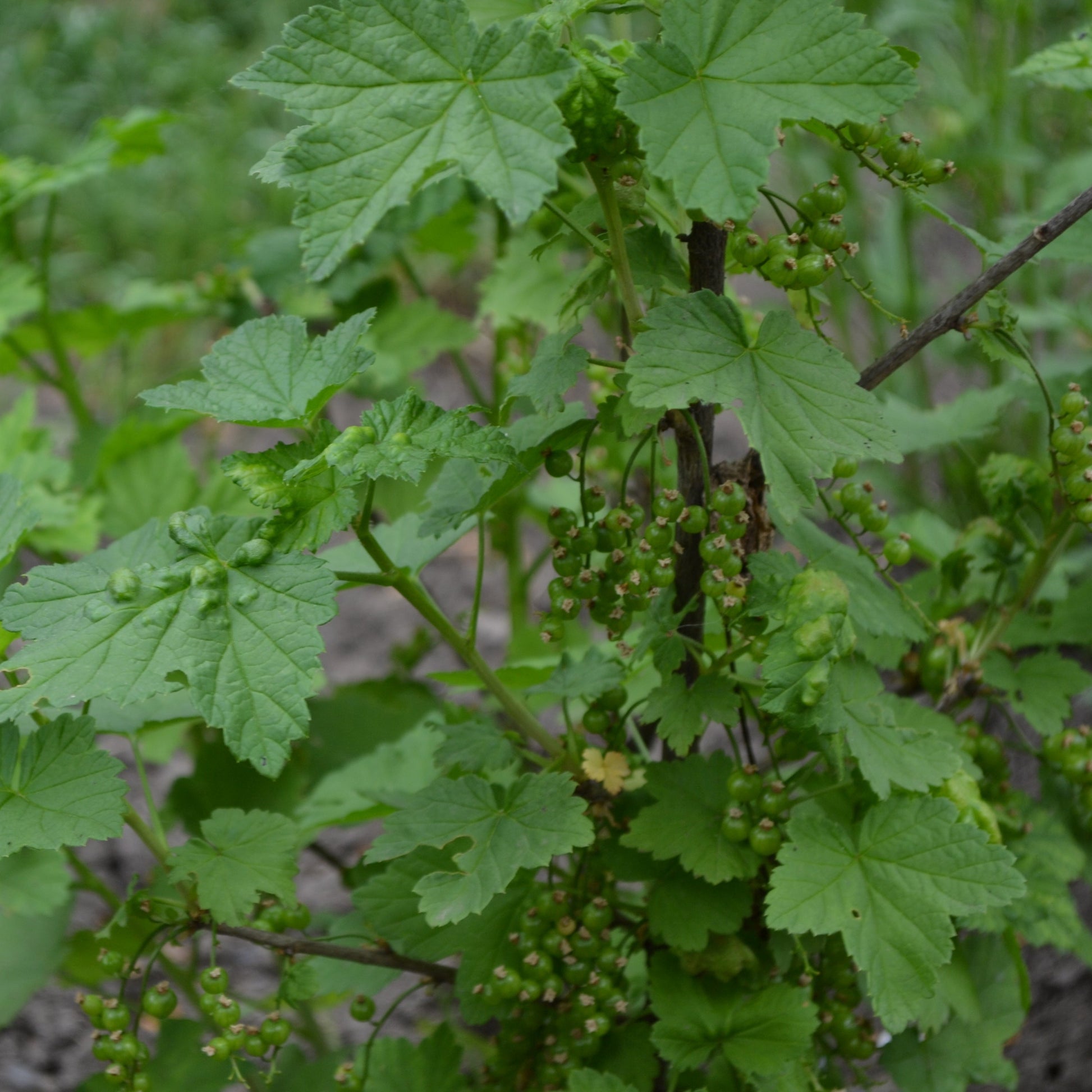Limited Quantities - Reserve Now For Fall
Black Currant Bush
Black Currant Bush
Couldn't load pickup availability
Ribes nigrum
Black Currant Bush
The Black Currant Bush is a compact, productive fruiting shrub known for its tart, aromatic berries, high vitamin C content, and adaptability to cooler climates. A favorite for jams, jellies, juices, and baking, black currants also offer medicinal and antioxidant benefits, making them a valuable addition to any edible garden.
Perfect for food forests, edible hedges, and permaculture plantings, black currants thrive in moist, fertile soils and provide both fruit and ecological function in small or large-scale gardens.
Black Currant Bush Overview
| Attribute | Details |
|---|---|
| 🌿 Botanical Name | Ribes nigrum |
| 🏷️ Common Names | Black Currant, European Currant |
| 🌳 Mature Height | 3–5 feet |
| 🌐 Mature Width | 3–5 feet |
| 📈 Growth Rate | Moderate (12–18 inches per year) |
| ⏳ Lifespan | 10–20 years |
| 🧊 USDA Zones | 3–7 |
| ☀️ Sun Preference | Full sun to partial shade (best fruiting in full sun) |
| 🧱 Soil Type | Moist, well-drained loam or sandy loam |
| ⚖️ Soil pH | Slightly acidic to neutral (5.5–7.0) |
| 💧 Water Needs | Moderate; prefers evenly moist soil |
| 🍇 Fruit Type | Small, dark purple berries with tangy, aromatic flavor |
| 🌸 Flower Color | Pale green to yellow with purple edges; spring blooming |
| 🐝 Pollination | Self-pollinating; increased yield with multiple plants |
| 🌿 Growth Habit | Multi-stemmed, upright to arching shrub |
| ↔️ Spacing | 4–5 ft between plants for optimal air circulation |
| 🏡 Landscape Uses | Edible gardens, food forests, wildlife hedges, permaculture |
| 🧹 Maintenance Level | Low to moderate |
Environmental Benefits
🌸 Supports pollinators and beneficial insects with spring flowers
🍇 Provides nutrient-rich fruit for humans and wildlife
🌿 Fits well in diverse plantings and layered food forests
🪶 Offers cover and seasonal food for birds and small mammals
Pros & Cons
| ✅ Pros | ⚠️ Cons |
|---|---|
| 🍇 Produces nutrient-dense berries rich in antioxidants | 🐛 May be susceptible to aphids, powdery mildew, or currant borer |
| 🌿 Compact size fits easily into most landscapes | ❄️ Dormant early in spring; slow to leaf out in cold climates |
| 🧬 Cold-hardy and productive in northern zones | ✂️ Annual pruning required to maintain productivity |
| 🌱 Low-maintenance and long-lived | 🌾 Not recommended in areas where Ribes species are restricted |
| 🐝 Attracts pollinators and supports wildlife habitat | 💧 Needs consistent moisture during fruit development |
Planting & Care Guide
🛁 Water thoroughly before and after planting; keep evenly moist during establishment
🕳️ Dig a hole twice as wide as the root zone; set plant at the same depth as nursery soil
🌾 Apply 2–3 inches of mulch to regulate temperature and preserve moisture
💦 Water weekly during fruiting season or dry spells
✂️ Prune in late winter to remove old wood and improve airflow
🧪 Fertilize lightly in early spring with compost or berry-safe organic fertilizer
The Black Currant Bush is a high-value fruiting shrub that brings compact form, powerful nutrition, and seasonal beauty to edible landscapes. Whether you're growing for culinary use, medicinal value, or ecological balance, this northern favorite is a must-have for any fruit-forward garden or permaculture design.
Share




